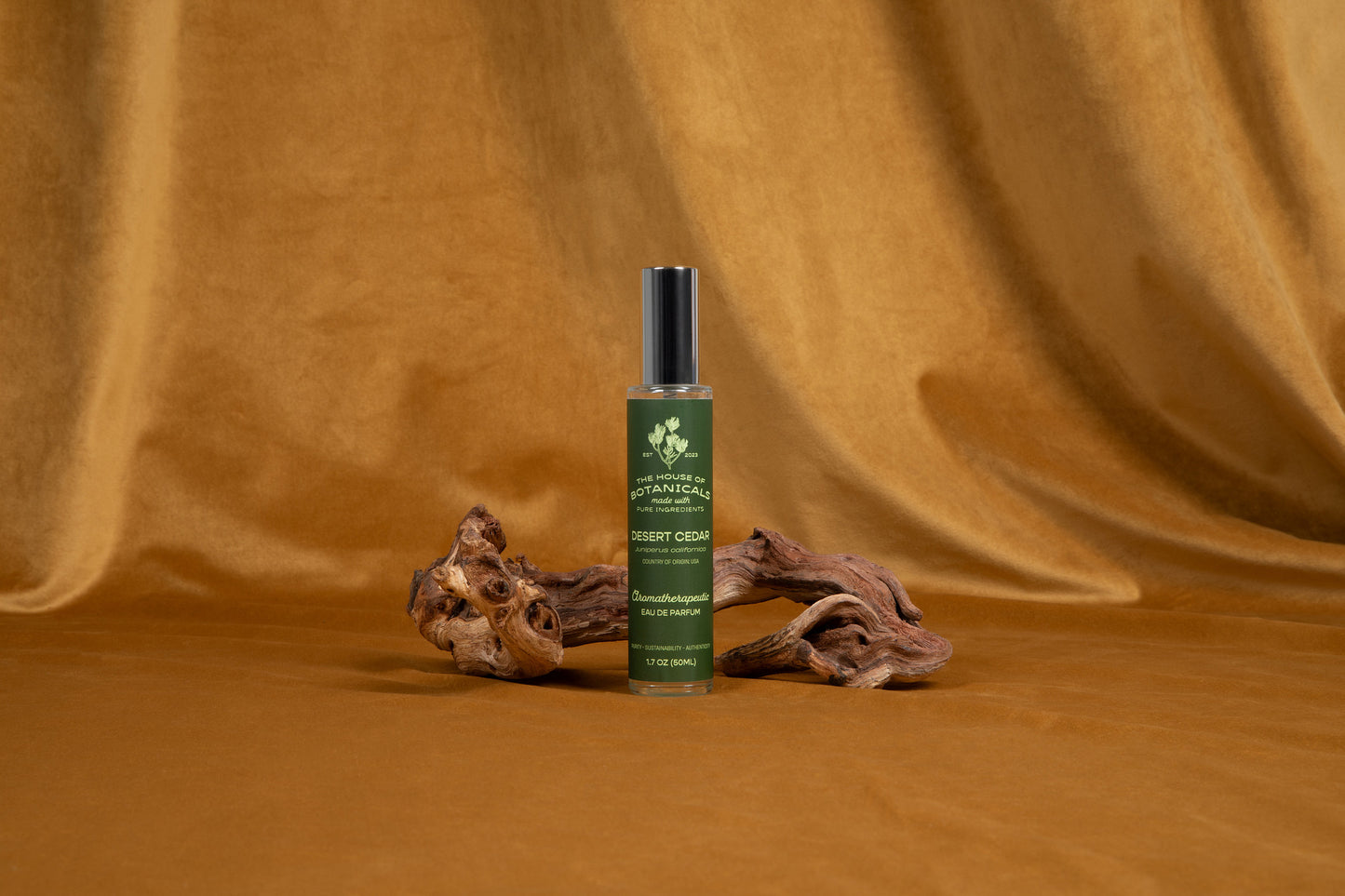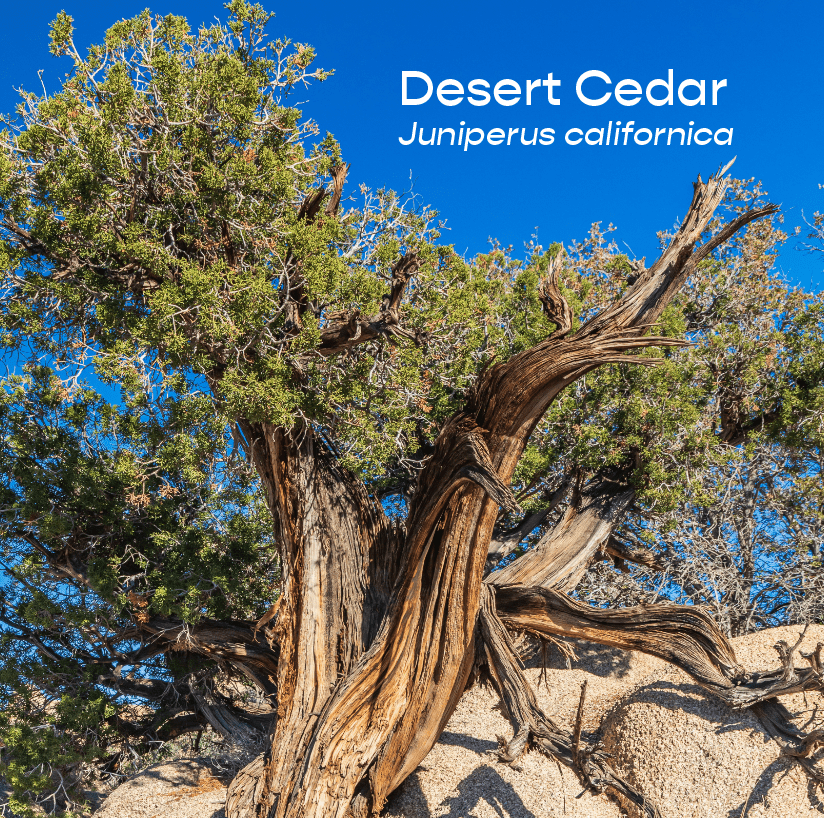Desert Cedar Aromatherapeutic Ritual Spray, 50ml
Desert Cedar Aromatherapeutic Ritual Spray, 50ml
Bring the grounding clarity of the desert into your home with Desert Cedar Aromatherapeutic Ritual Spray. Each spray clears stagnant energy, soothes the senses, and creates a calm, steady atmosphere for mind and body.
Derived from resilient Juniperus californica trees, Desert Cedar has long been used in aromatic traditions for balance and focus. Its crisp, resinous scent helps you feel centered, peaceful, and refreshed.
Use it to reset your space, calm your thoughts, or invite quiet strength into your day.
Wild Origins
Mojave Desert and high chaparral regions of California
Scent Story
Dry wood, resin, and sun-warmed earth — crisp, smoky, and grounding with a hint of desert wind
Curious about what makes Desert Cedar so special? Learn about its traditional uses, natural properties, and responsible sourcing in our Desert Cedar Ingredient Guide →
Share






